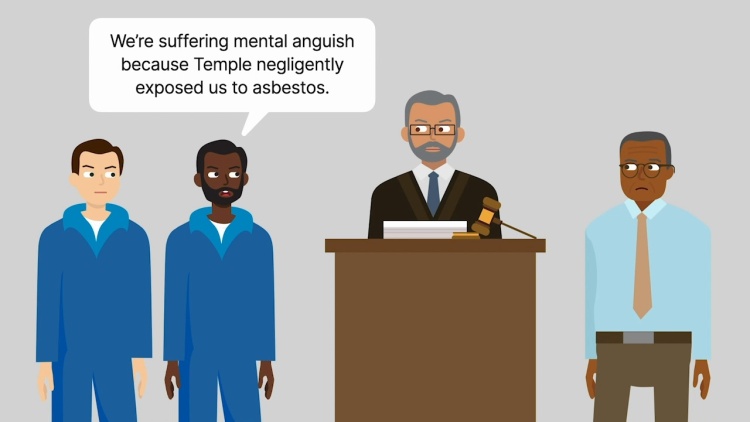Temple-Inland Products Corporation v. Carter
Texas Supreme Court
993 S.W.2d 88 (1999)
- Written by Craig Conway, LLM
Facts
Martin Carter, Sr. and Larry Wilson (plaintiffs) worked for Biskamp Electric. Temple-Inland Products Corporation (TIPC) (defendant) hired Biskamp Electric to install electric outlets and computer jacks in a laboratory. In performing the work, Carter and Wilson drilled holes in laboratory countertops. Unbeknownst to Carter and Wilson, the countertops contained asbestos. Consequently, Carter and Wilson inhaled asbestos fibers for several weeks during the project. Nearly two years later, Carter and Wilson were examined by a physician who concluded that neither man had developed any asbestos-related disease. Carter and Wilson filed suit against TIPC for mental-anguish damages. Carter and Wilson alleged that TIPC failed to inform them that the countertops contained asbestos. During a deposition, the physician testified that neither Carter nor Wilson currently suffered from any disease but that each had a high risk for developing some ailment in the future. The trial court granted TIPC’s motion for summary judgment on the claims for actual and punitive damages. Carter and Wilson appealed. A divided court of appeals reversed the actual damages claim, concluding that Carter and Wilson could recover mental anguish damages based upon a reasonable fear of developing a future illness. The Supreme Court of Texas granted certiorari to review.
Rule of Law
Issue
Holding and Reasoning (Hecht, J.)
What to do next…
Here's why 899,000 law students have relied on our case briefs:
- Written by law professors and practitioners, not other law students. 47,000 briefs, keyed to 994 casebooks. Top-notch customer support.
- The right amount of information, includes the facts, issues, rule of law, holding and reasoning, and any concurrences and dissents.
- Access in your classes, works on your mobile and tablet. Massive library of related video lessons and high quality multiple-choice questions.
- Easy to use, uniform format for every case brief. Written in plain English, not in legalese. Our briefs summarize and simplify; they don’t just repeat the court’s language.





